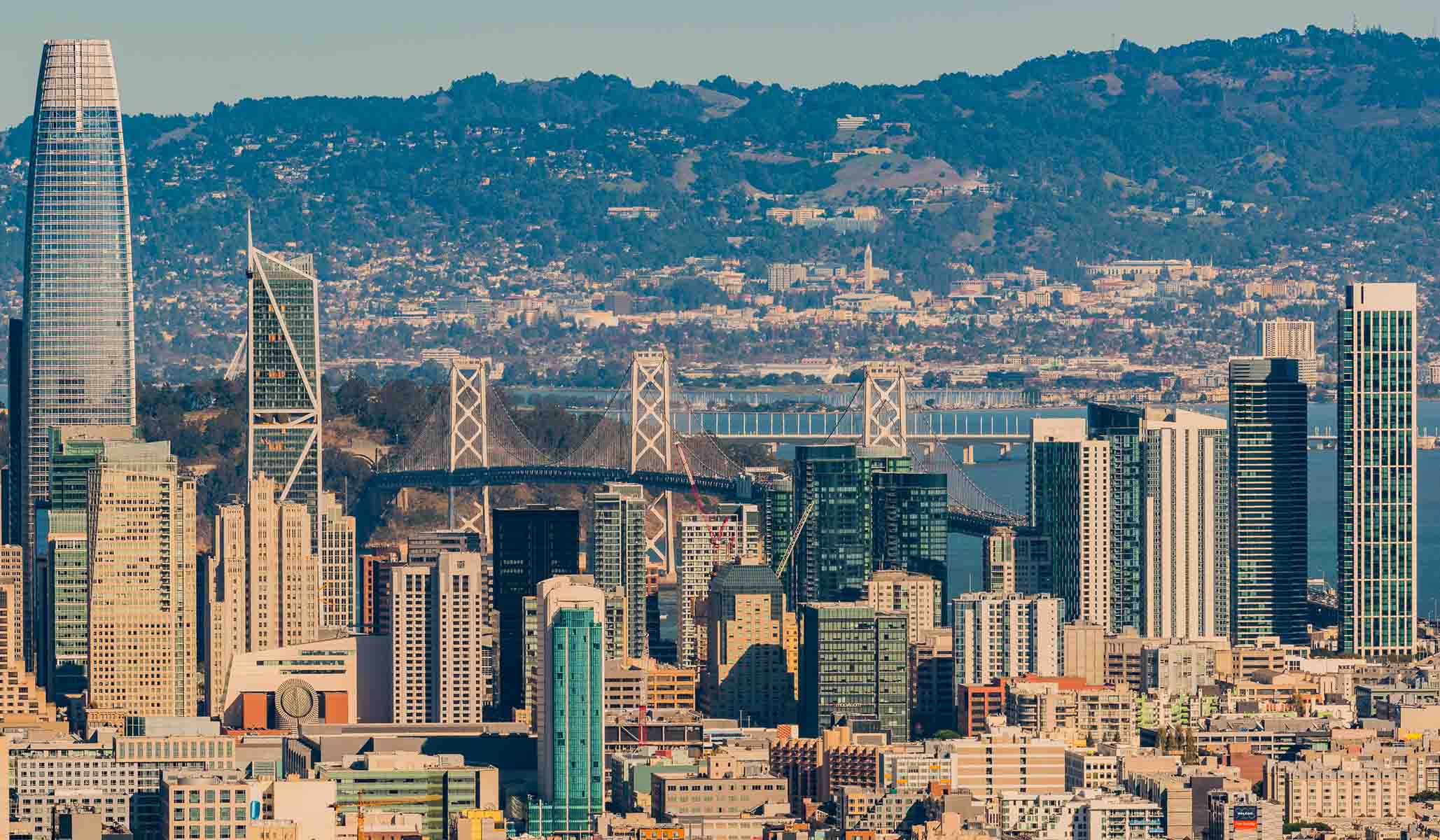


“San Francisco has only one drawback,” wrote Rudyard Kipling, “Tis hard to leave.”
It seems that that is no longer the case. According to new U.S. census data, the city’s population fell by over 7 percent between July 2020 and July 2022, a sharper decline than that seen in surrounding counties, and more than California as a whole over the same period (-1.2 percent). Part of that is a Covid effect (the rate of decline fell very sharply between 2021 and 2022), but there are clear indications that something more troubling is going on. The longer-term consequences of the Covid lockdowns have yet to work themselves out across the country (not least when it comes to office-occupancy rates), but, ominously, there no longer seems to be much willingness to give San Francisco the benefit of the doubt. Crime and high taxes are, doubtless, not doing much to help.
Lenders to San Francisco’s beleaguered commercial real estate market are braced for defaults on billions of dollars of debt after the owners of the city’s largest shopping mall and biggest hotel ceased loan payments and handed back the keys on what was once the city’s most valuable property.
This week, Westfield and Brookfield Properties announced they had stopped making payments on a $558mn loan secured against San Francisco’s sprawling downtown mall that they have owned since 2002, and would surrender the premises to its lenders.
Days earlier, New York-listed Park Hotels & Resorts said it expected to hand over ownership of two of its prime San Francisco hotels — the Hilton Union Square and Parc 55 — after it stopped making payments on a $725mn loan. The hotels were valued at more than $1.5bn when the loan was issued in 2016, suggesting that its owners believe their value has more than halved.
The large defaults were the latest in a number of distress signals by landlords of offices, hotels, apartment blocks and retailers in San Francisco. The city has been struggling with a steep decline in tourism and business travel since the coronavirus pandemic, downsizing by technology companies, an exodus of residents, and international scrutiny over crime, drug use and homelessness.
The FT’s article is accompanied by a chart which shows that hotel revenues per room are down slightly over 30 percent (May 2023 versus May 2019) in San Francisco. The only other city on the chart showing a fall is Chicago (down just under five percent). Revenues in Los Angeles are up around 10 percent, slightly ahead of New York City. Declining tourist traffic from China is a part of the story in San Francisco, but, clearly, only a part.
As Tabby Kinder, the writer of the FT’s report notes, in the city’s financial district, some office towers have been changing hands at a quarter of the price at which they were being marketed “three years ago” (presumably that’s a reference to pre-Covid prices). Potential bargain hunters evidently don’t have much confidence in their ability to price in how much further the sell-off has to go. There’s an old adage in financial markets that you shouldn’t try to catch a falling knife (meaning that a sudden decline in a security’s price does not necessarily mean that it’s cheap) and real-estate investors seem to be looking at San Francisco and seeing a lot of falling knives. They may well be right.
Kinder:
The accelerating number of defaults across multiple property asset classes has raised concerns about a drop in city tax revenues that could fuel a “doom loop” — an economic and social spiral that becomes impossible to reverse. Large office buildings trading at heavily discounted prices would quickly erode a crucial part of the city’s tax base. San Francisco has projected a $780mn budget deficit over the next two years, which will affect its ability to provide public services or offer incentives to businesses to help revitalise downtown.
Owners of some of San Francisco’s iconic buildings such as the Transamerica Pyramid and Uber’s Mission Bay headquarters have petitioned the city to lower their tax burden as the value of their properties has plunged.
“The concern for San Francisco is that it loses its critical mass,” said LaSalvia at Moody’s. He said that there was a “snowball effect” in which departing retailers and tech companies leads to an even greater reduction in foot traffic, increasing the risk for remaining tenants and owners, who are then more likely to default.
There’s an obvious warning embedded in this story. The question is whether mayors (and the voters who pick them) in cities such as New York and Chicago can learn from what is looking like a disaster in one of America’s loveliest cities.
In that respect, the omens from Chicago were not exactly the best.
Meanwhile, it’s hard to imagine that the spectacle of a commercial real-estate debacle in San Francisco will do much that’s good for that troubled sector elsewhere.
